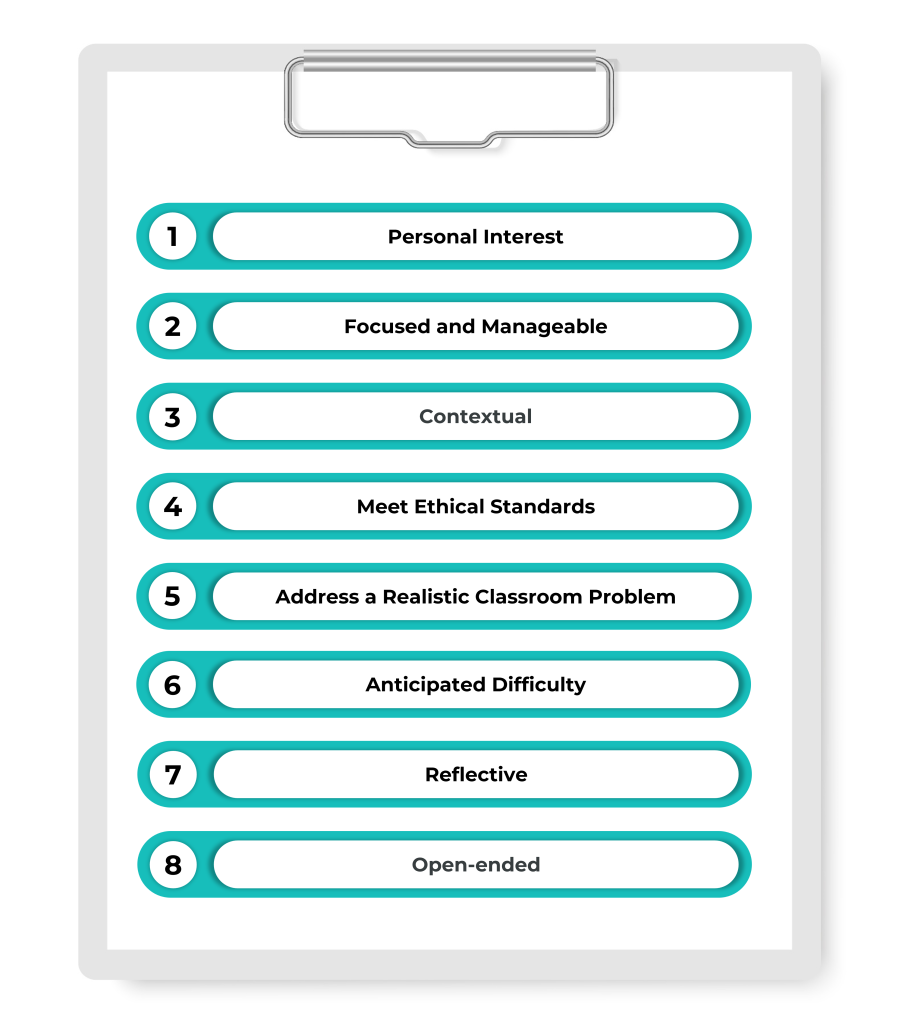The purpose of action research is to answer a certain question or to solve an identified problem.

The following criteria can be considered when reflecting on your research topic.
- Personal Interest:
You should have a personal interest in your research topic. - Focused and Manageable:
Ensure the topic is neither too broad nor too narrow to allow for manageable data collection within the given timeframe. - Contextual:
Focus on areas within the normal scope of work that can be intentionally improved, emphasizing the deliberate nature of change in a specific work aspect. - Meet Ethical Standards:
Adhere to ethical standards, ensuring participants are treated ethically and safeguarded from harm in any form. - Address a Realistic Classroom Problem:
Formulate a research question directly addressing a classroom problem, with results contributing to positive change for participants. - Anticipated Difficulty:
Evaluate the difficulty level of investigating the topic, designing the study within your research skill proficiency. - Reflective:
Ensure the research question generates findings that prompt reflection on students, the classroom, and personal practice. - Open-ended:
Frame the research question in an open-ended manner, avoiding yes/no responses.
Areas of Research
There is no shortage of research topics. Many of these topics can be clustered into the following three broad areas (Johnson 2008):
1. Trying a new teaching method
Action research that focuses on trying out a new teaching method allows for the systematic investigation of the effectiveness of this new method.
2. Identifying a problem
Frequently educators are aware of when there is a problem in their classrooms; a systematic organization of the problem can help educators better understand the problem and its possible causes and can help them explore various solutions.
3. Examining an area of interest
Educators like most professionals are curious about topics in their profession. Action research can be used to study topics in an exploratory fashion.
Examples
Mertler and Charles (2011) expanded on these three clusters. The following are just a few examples.
- Classroom Environment
Topics can include aspects of the physical and psychosocial environments in classrooms (face-to-face and online) and their impact on student learning. - Instructional Materials
Topics can include the usefulness of instructional materials in supporting student learning. - Instructional Methods
Topics can include the effectiveness of a given teaching method on student engagement, performance, etc. - Grading and Evaluation
Topics can include the effectiveness of a particular form of assessment on student performance.
Centennial Research Examples
Interactive Book
Research Example
Click the previous/next arrows to move between the different examples or use the table of contents menu. You can view the presentation in full screen mode by clicking on the expand arrow icon.

